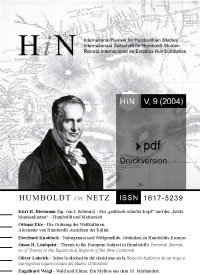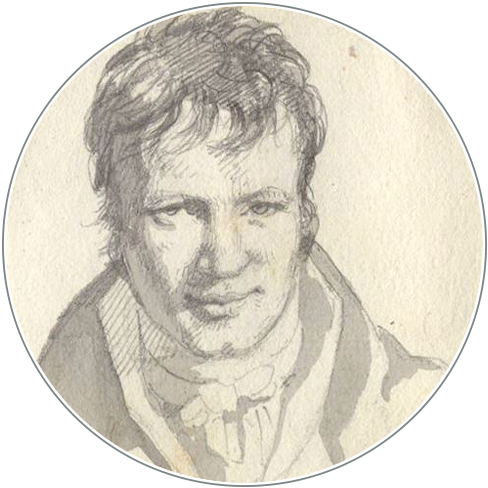“Under the influence of an exotic nature...national remembrances are insensibly effaced”: Threats to the European Subject in Humboldt’s <i>Personal Narrative of Travels to the Equinoctial Regions of the New Continent</i>
DOI :
https://doi.org/10.18443/52Mots-clés :
1799-1804, Europa, Relation historiqueRésumé
Abstract
My essay attends to a number of passages in Alexander von Humboldt’s Personal Narrative in which the Prussian explorer expresses anxiety about the apparent dangers posed by the overwhelmingly productive tropical landscapes he observes. In these passages, the excesses of an “exotic nature” threaten European identity and modes of civilization—and they trouble the accuracy of Humboldt’s own observational project. I also explore Humboldt’s related worry that South American vegetable (and visual) overload will exert a destabilizing effect on his aesthetic sensibility, disrupting his ability to represent the “New Continent” accurately in writing. Finally, I sketch the influence of Humboldt’s representations of tropical excess on nineteenth-century British cultural thought and literary practice. Studying the instabilities experienced by Personal Narrative’s expatriates and colonists promises to draw out important tensions latent in Humboldt’s treatment of tropical landscape and to illuminate broader epistemological and aesthetic shifts being worked out during the period.
Téléchargements
Comment citer
Numéro
Rubrique
Licence
(c) Tous droits réservés Jason H. Lindquist 2004

Ce travail est disponible sous licence Creative Commons Attribution - Pas d’Utilisation Commerciale 4.0 International.
Les droits des articles envoyés restent la propriété de leurs auteurs et sont publiées sous la licence Creative Commons-Lizenz (CC BY-NC 4.0). Tous les auteurs publiant dans le HiN doivent accepter ce modèle de licence.
Les auteurs doivent eux-mêmes s’occuper de l’obtention des droits d’auteur pour les images utilisées.
Les divers éléments de la mise en page et du design de la revue sont protégés et ne peuvent être récupérés et réutilisés dans d’autres publications sans autorisation préalable de la part de HiN.










